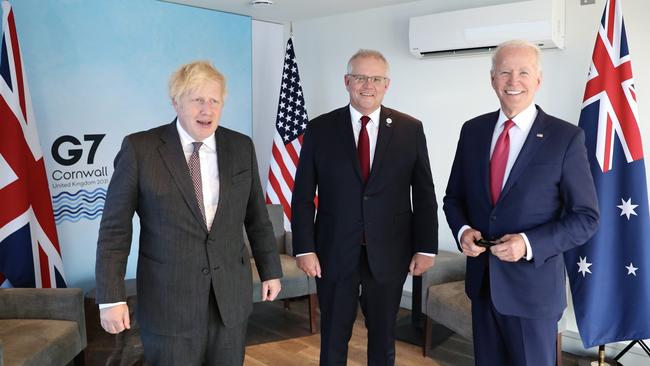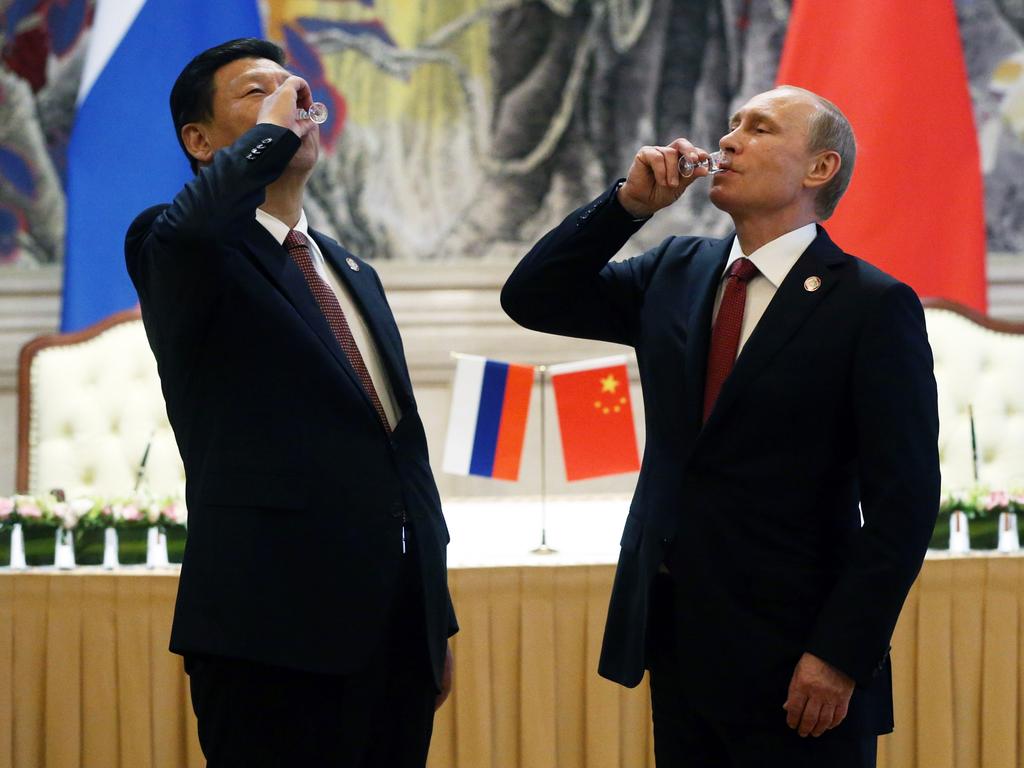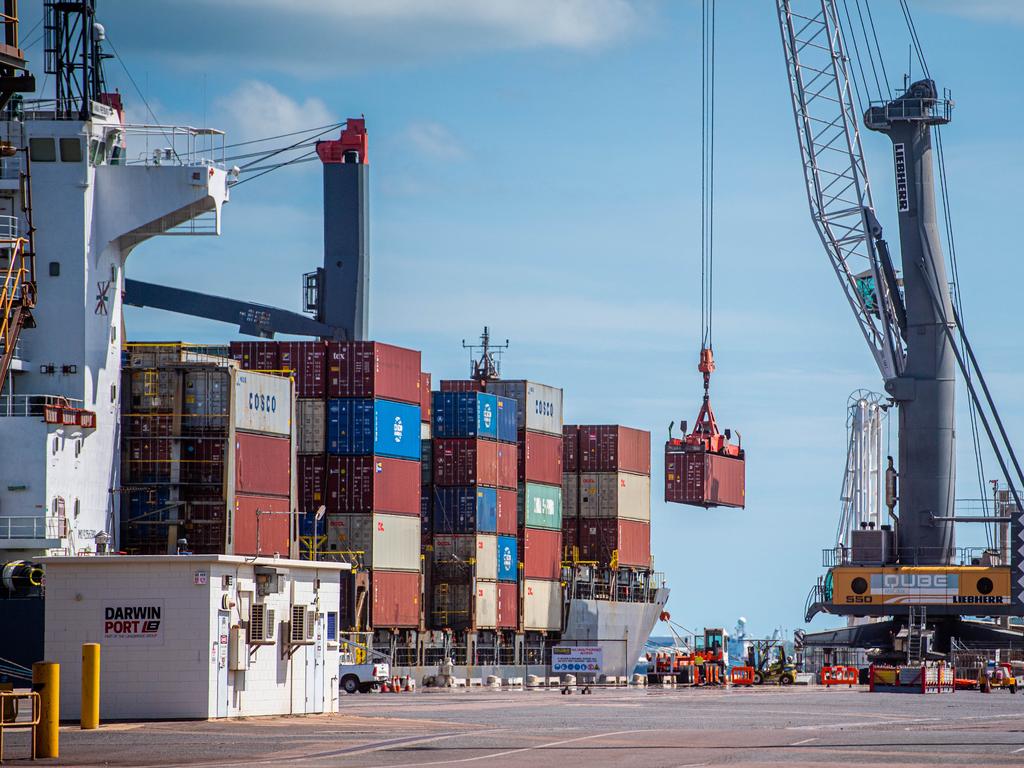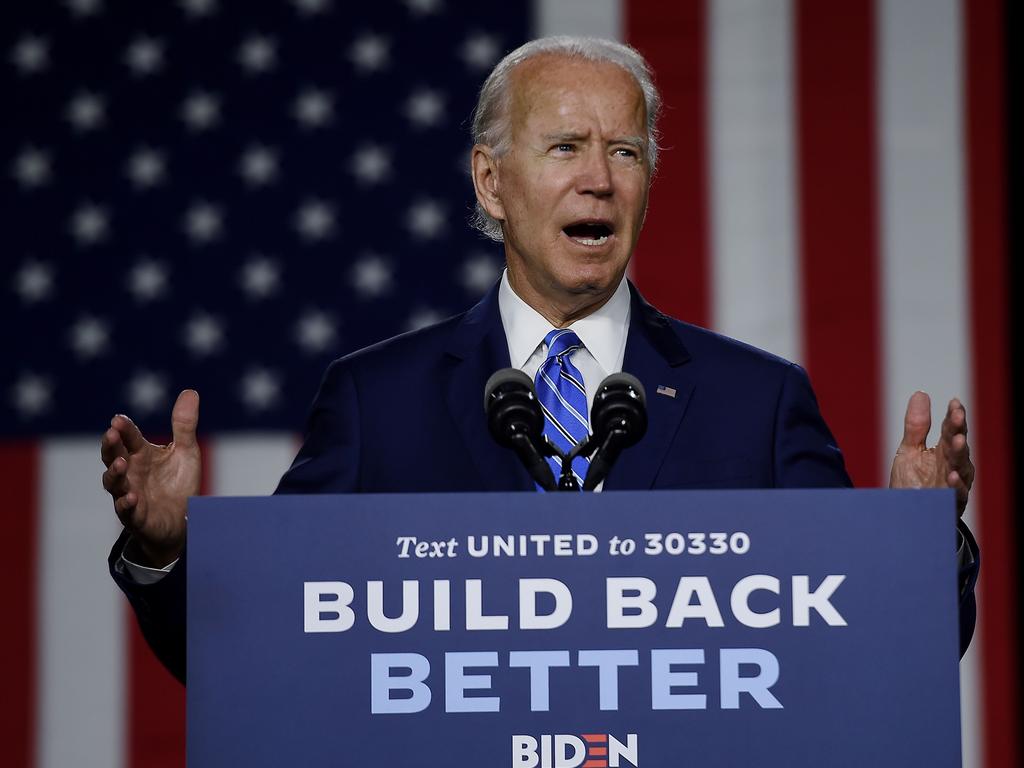A coalition will blunt Beijing’s ambition

That world decidedly is upon us. China is already by some measures the world’s largest economy and it is accelerating its translation of that wealth into awesome military power.
This has profound implications for everyone, especially for Australia. For the first time in its history, Australia will face a menacing Asian superpower.
During the Cold War, the Soviet Union and communist China could not project serious military power into the Pacific. Even in the most desperate days of World War II, Japan was a mere 10th the economic heft of Australia’s American ally.
Now Australia faces a behemoth, a Jupiter of the international solar system. And Beijing is clearly willing to use that power. It is already employing its economic leverage to try to coerce Australia to abandon its cherished freedoms and autonomy for the sin of – gasp – Canberra’s demand for a credible investigation of Covid-19.
And China is building a military not merely to defend itself but to project power far and wide. You don’t build aircraft carriers, nuclear-powered submarines, a huge space architecture, amphibious and air assault forces, and nuclear capabilities to defend your coastline.
Beijing’s goals appear to be regional hegemony over Asia, the world’s largest market, as a start, and global pre-eminence from there. Some argue that Australia should accommodate Beijing and hope for the best; but that would result in the compromise of the freedoms and prosperity that make Australia the envy of the world.
What defence strategy should Australia adopt to deal with this daunting reality, then?
On the one hand, some appear to act as if nothing has really changed, that Australia and its allies can continue intervening around the world. On the other side, others argue that Australia should arm itself with nuclear weapons and try to go it alone.
Neither of these will work. Continuing to fritter away our collective military and political strength in “forever wars” and secondary theatres will result in China dominating Asia, with dramatic consequences for everyone but especially for Australia.
The notion that Australia can stand up to China alone, meanwhile, is a delusion. China is just too strong. Even an Australia armed with nuclear weapons likely would not be able to deter Chinese coercion. Would Australia commit mass suicide – the inevitable result of launching a nuclear attack on China – to avoid Beijing’s harsh but survivable demands to accept its hegemony?
It’s highly doubtful and certainly not a good strategy.
The reality is that Australia’s fate will be settled in the Western Pacific, where the great bulk of Asia’s wealth and power are concentrated. If China’s dominance is confined within the first island chain to parts of the Asian mainland, Australia will be secure; if China is able to dominate out beyond that, Australia’s fate likely will be sealed.
In light of this, there is a better alternative strategy: a coalition designed to blunt Beijing’s desire to dominate Asia, underwritten by a denial defence.
This strategy would involve bringing together the many countries of varying political and cultural complexions that do not want to live under China’s thumb, ranging from the US, Japan and Australia to India and Vietnam. Because of its unique heft, the US must play the role of cornerstone of this coalition.
Critical to the success of any such coalition is its ability to stand up to China’s own strategy, especially its best one.
That is likely to be a focused and sequential strategy designed to pick off enough vulnerable members of that coalition to cause a run on the bank of the coalition’s – and especially America’s – credibility.
Fearing they will be left exposed to China’s ire without sufficient backing, coalition members will start to cut deals with Beijing. The result: China will be able to dominate Asia without fighting a massive war it has plenty of reasons to avoid.

To stand up to this smart strategy, the US, Australia and others will need to work together effectively to defend those vulnerable coalition members, in particular those tied to Washington, and thus implicating America’s credibility in the region.
And they will need to do so in ways that correlate the real but not existential benefits of that defence with the costs and risks entailed.
The way they fight will need to be sane, relying on direct conventional defence, not anything, like massive nuclear first use or tanking their economies in vain hopes of coercing China.
Above all, this requires being able effectively to defend Taiwan from China’s own best military strategy – a fait accompli invasion designed to subordinate the island before an effective allied response can be mustered.
If the coalition can defend Taiwan, which is linked to the US by multiple threads of commitment, it can defend other maritime US allies, and the coalition should hold up.
Fortunately, Canberra already seems to have recognised this as the best strategy for Australia. Indeed, Canberra has shifted its strategy to underwrite this collective defence approach.
The US should support Australia’s ability to implement this shift by enabling it to procure the kinds of advanced military systems needed to stand up to China, pooling technology investments and concretely supporting Australia in the face of China’s coercive pressure.
Australia, in the meantime, should not be shy in pressing the US clearly to embrace and implement a strategy of denial, and in urging other key allies such as Japan to follow Canberra’s suit while pressing the case with Washington as well.
China’s rise is compelling all of us to re-evaluate our foreign and defence strategies.
Australia appears to have recognised that its fate will be sealed forward, in the Western Pacific, that collective denial defence is the answer, and to have begun to make the changes needed to realise a strategy of denial.
This is the right course, and the US should follow suit. Strong and focused efforts to underwrite a collective strategy of denial now will stand a much better chance of deterring war in ways that favour our collective interests.
Delay, meanwhile, will make war – and disaster – far more likely.
Elbridge Colby is the author of The Strategy of Denial: American Defense in an Age of Great Power Conflict (Yale University Press, 2021). As US deputy assistant secretary of defence from 2017 to 2018 he led the development of the US 2018 national defence strategy.
More Coverage








Xi Jinping is fond of quoting Napoleon’s quip that when China arose the world would quake.